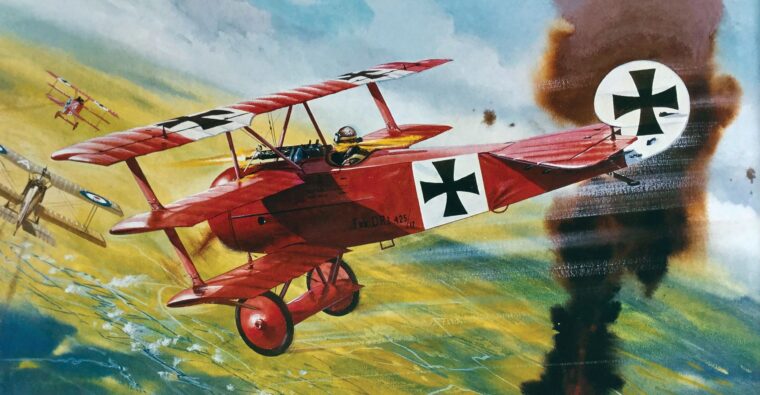
World War I
The Red Baron
By Kelly BellManfred Albrecht Freiherr von Richthofen was born May 2, 1892, as the second of four children to Baron Albrecht and Kunigunde von Richthofen. Read more
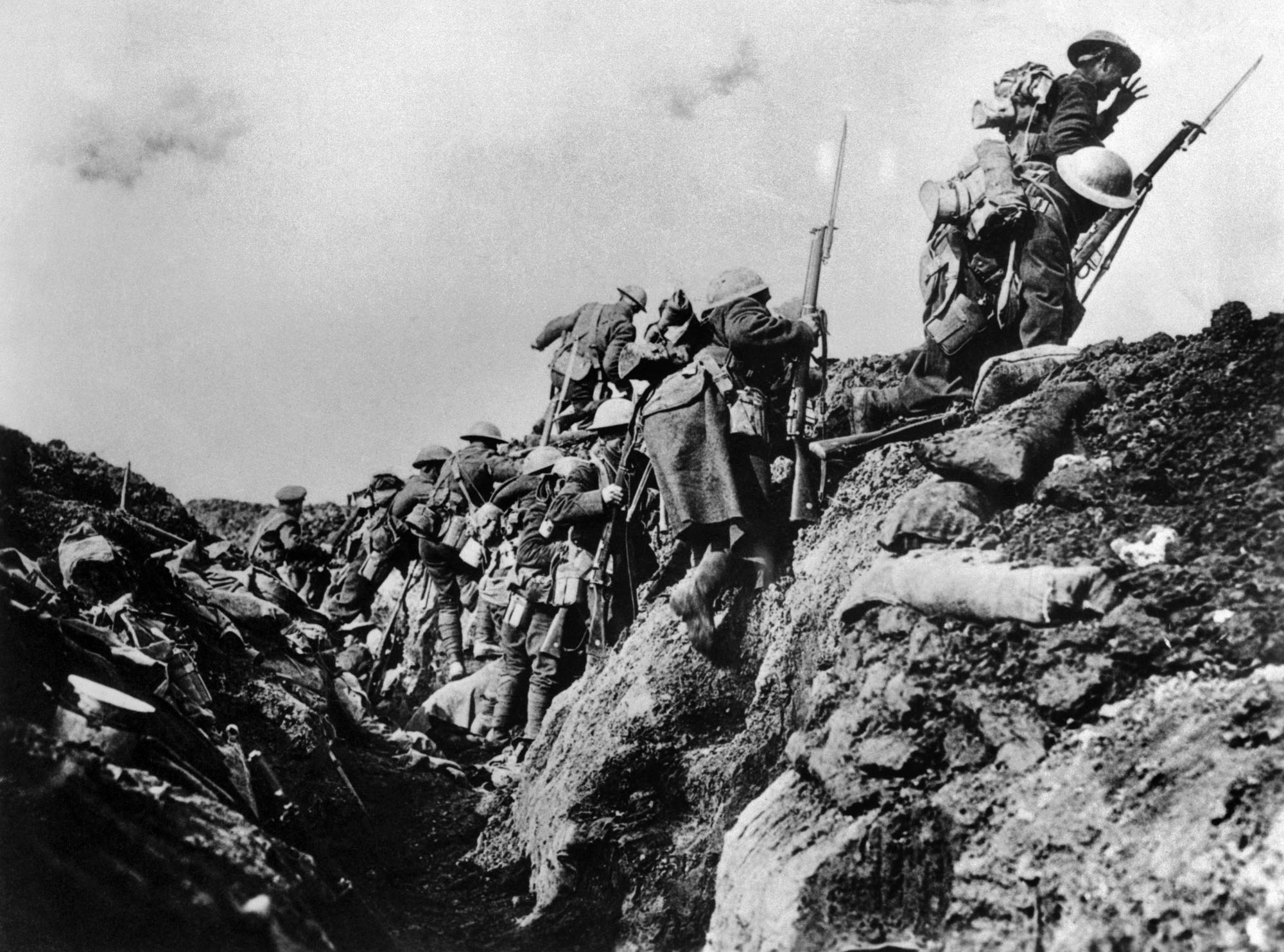
World War I was a global conflict of the early 20th century from 1914-1918, between the Central Powers, Germany, Austria-Hungary, the Ottoman Empire and Bulgaria, and the Allied powers, primarily Great Britain, France, Russia, and later the United States. World War I was ignited in the Balkan city of Sarajevo in June 1914 with the assassination of Archduke Franz Ferdinand, heir to the Austro-Hungarian throne, and war was declared in August. World War I was characterized by the horror of trench warfare on the Western Front and the rise of Bolshevism in the East, and millions died in the catastrophic conflict. The causes of World War I were many, including various territorial disputes, a major arms race, conflicting political ideologies, and more. World War I ended with the Treaty of Versailles; however, the agreement left many issues unresolved and heaped blame and the requirement for reparations on Germany, sowing the seeds of World War II.

World War I
Manfred Albrecht Freiherr von Richthofen was born May 2, 1892, as the second of four children to Baron Albrecht and Kunigunde von Richthofen. Read more
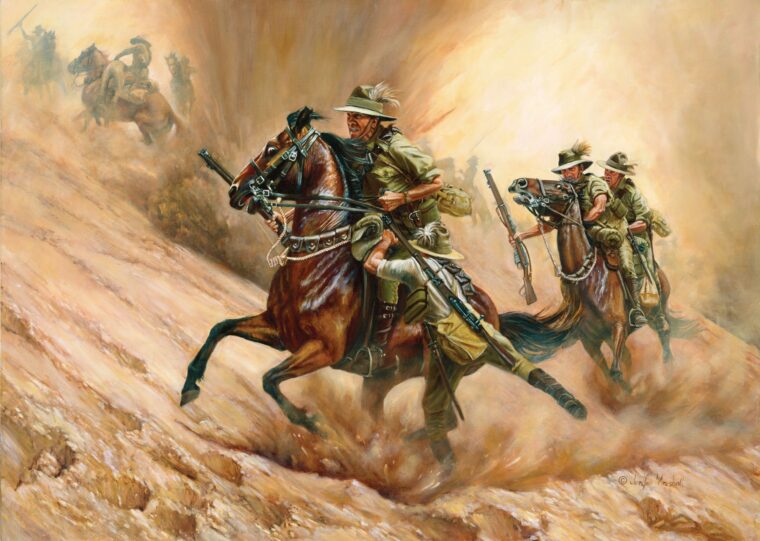
World War I
On May 28th, 1915, Ion Idriess, a trooper of the 5th Australian Light Horse Regiment, sat writing in his diary in a dugout at Gallipoli. Read more
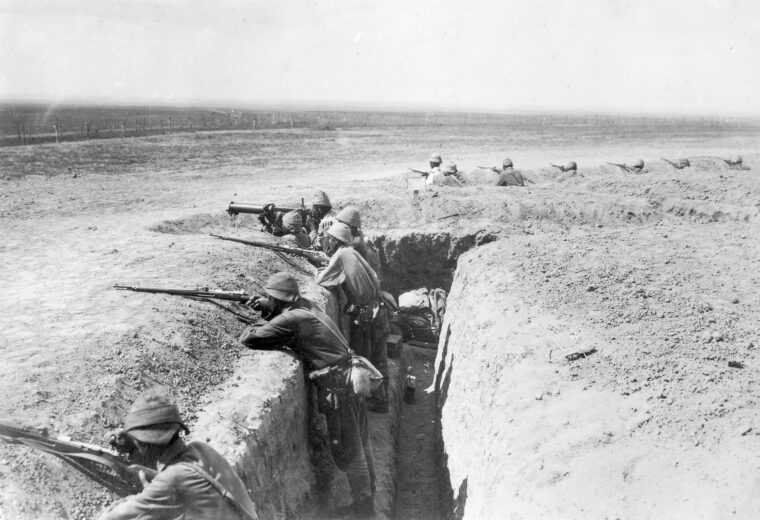
World War I
Since the days of the Trojan Horse, military deception and ruse have been effective instruments when used by an innovative commander to deceive and defeat an enemy, minimizing friendly casualties and expenditure of valuable resources in the process. Read more
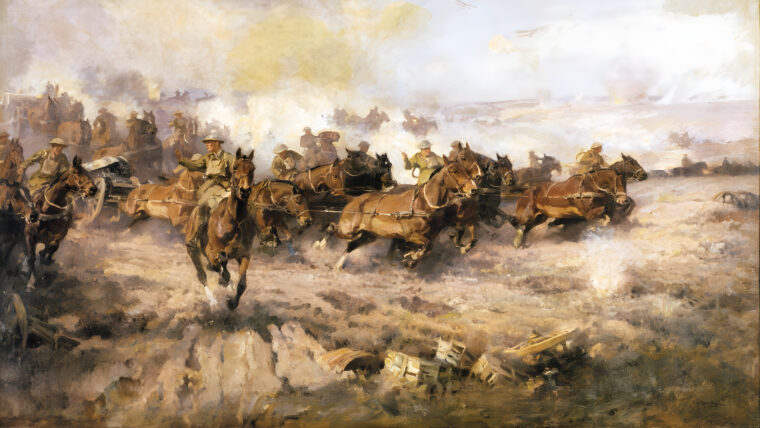
World War I
At the start of the Battle of Amiens, Sergeant Paul Maze was in a forward observation post not a thousand yards from the front, peering into the darkness for any signs of enemy activity. Read more
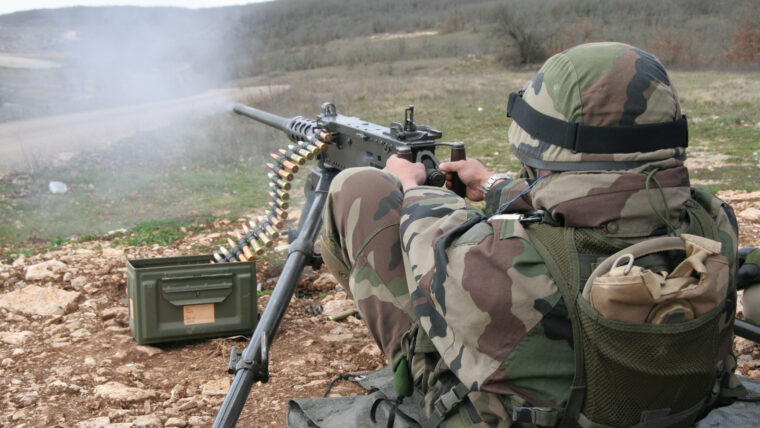
World War I
When one thinks back to the weapons of mass destruction that emerged in the 20th century, usually the atomic bomb or poison gas come to mind. Read more
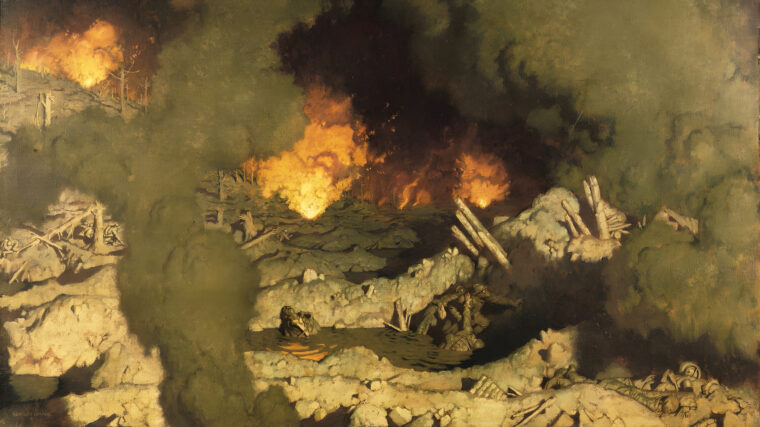
World War I
Operation Gericht—which means “judgment” or “tribunal”—was the German offensive of the Battle of Verdun. The operation was the brainchild of Erich von Falkenhayn, chief of the German general staff as the year 1915 was coming to a close. Read more
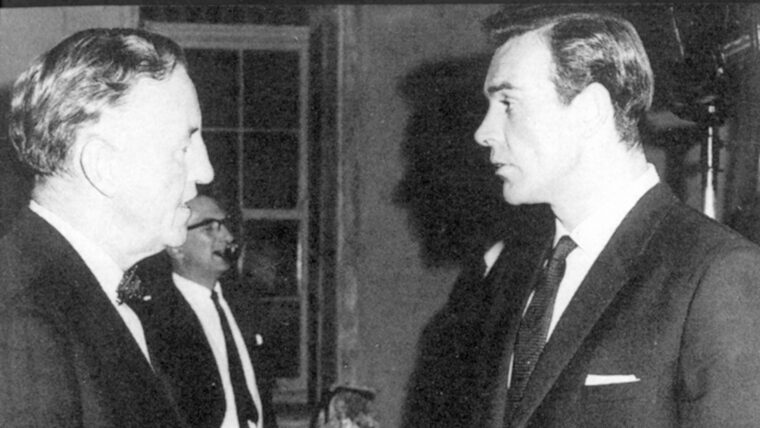
World War I
Ian Fleming’s biography would certainly include creating the famous British spy James Bond, but the author also led a secret life of his own. Read more
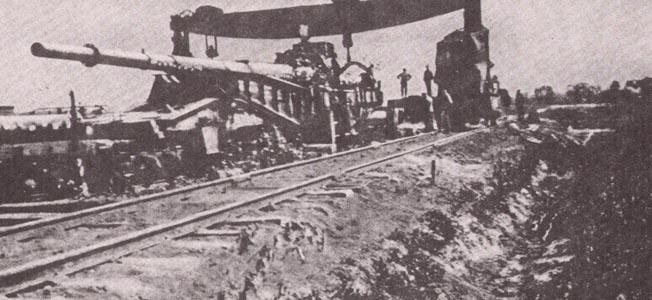
World War I
World War I’s stalemate on the Western Front ushered up varied solutions. The Allies developed tanks for traversing no man’s land to get at the enemy. Read more
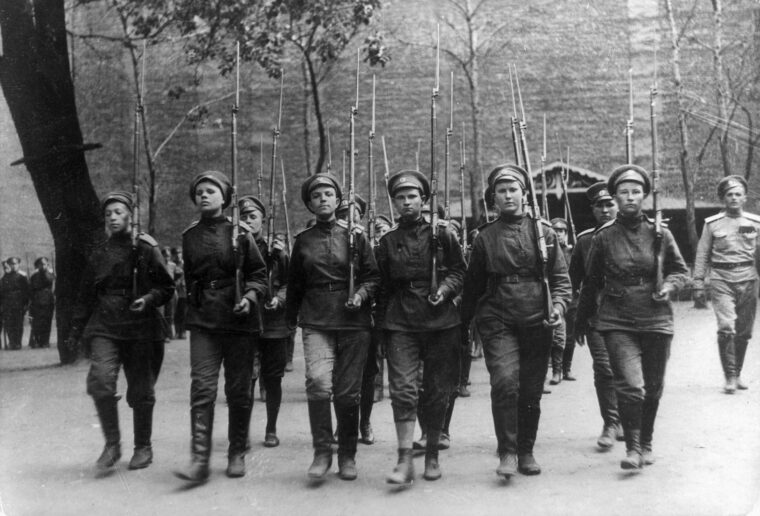
World War I
By spring 1917, Russia had borne the heaviest burden of World War I. Russian reports counted more than six million men killed, wounded, or interned as prisoners of war. Read more
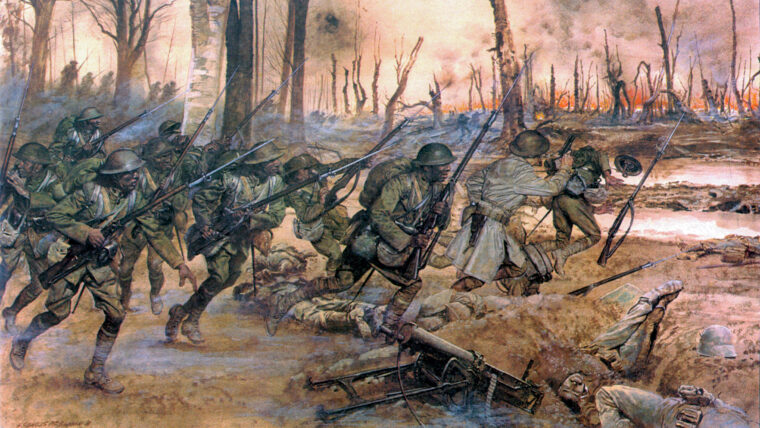
World War I
In July 1918, 30-year-old U.S. Army Captain Hamilton Fish, Jr., was in war-torn France with the 15th New York National Guard Regiment—also known as the (U.S.) Read more
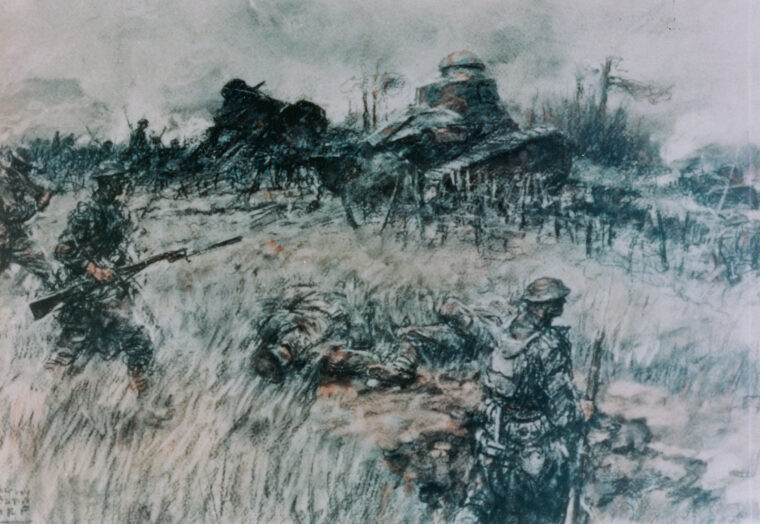
World War I
The affection that Europeans have for the Great American West is well known, so it shouldn’t be surprising that several traveling Wild West Shows happened to be in enemy territory when World War I broke out. Read more
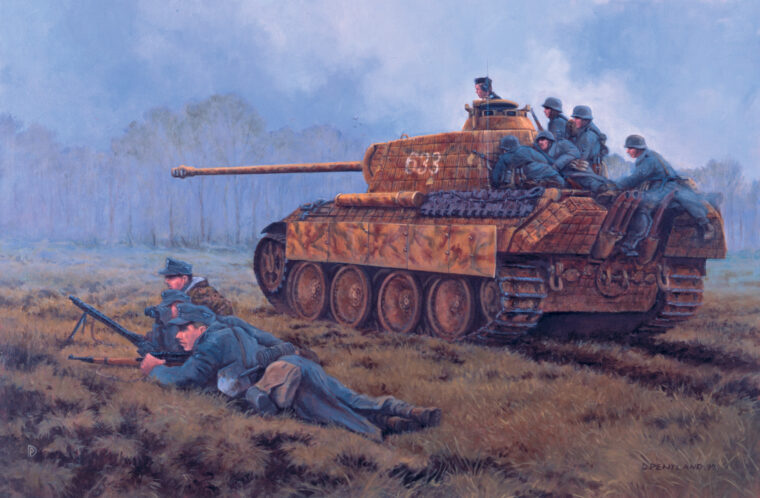
World War I
“Where is Steiner?” Adolf Hitler demanded as his Thousand Year Reich crumbled around him in April 1945. “Is he attacking yet?” Read more
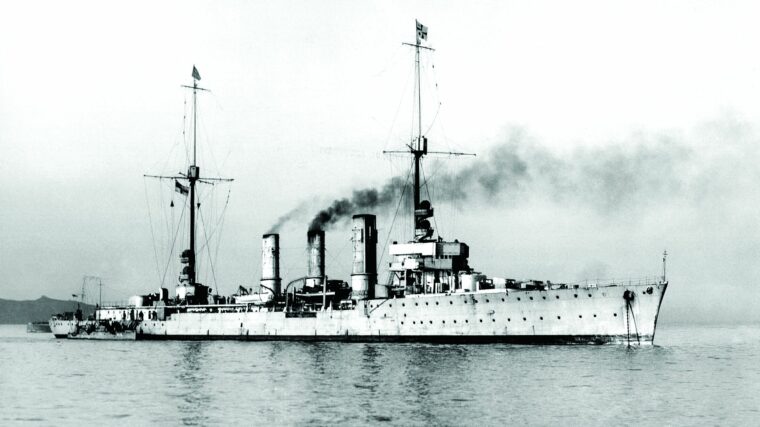
World War I
The field telephone rang on the bridge of the trapped German cruiser SMS Konigsberg. On the other end of the line, the coast watcher spoke the words that had been dreaded for almost eight months—the British were coming. Read more
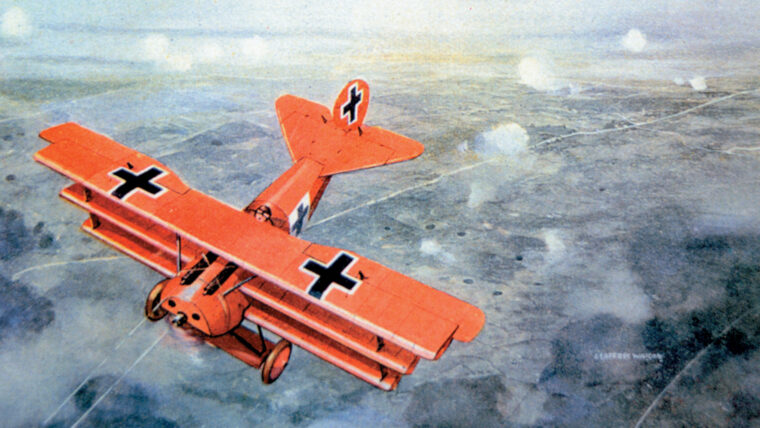
World War I
It was early in the year 1917, and a member of the Luftstreiknafte (German Army Air Service), Freiherr (Baron) Manfred von Richthofen, was feeling a trifle disgruntled. Read more
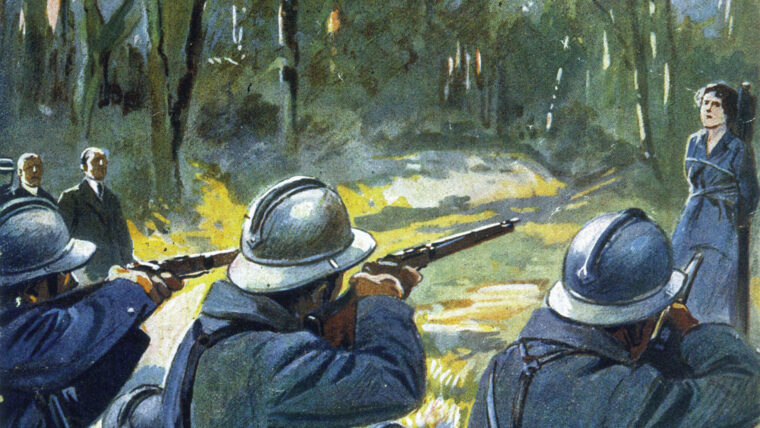
World War I
Just before six o’clock on the morning of October 15, 1917, a caravan of five rickety automobiles departed the prison at Saint-Lazare and proceeded to make its way post-haste through the gaslit streets of Paris. Read more
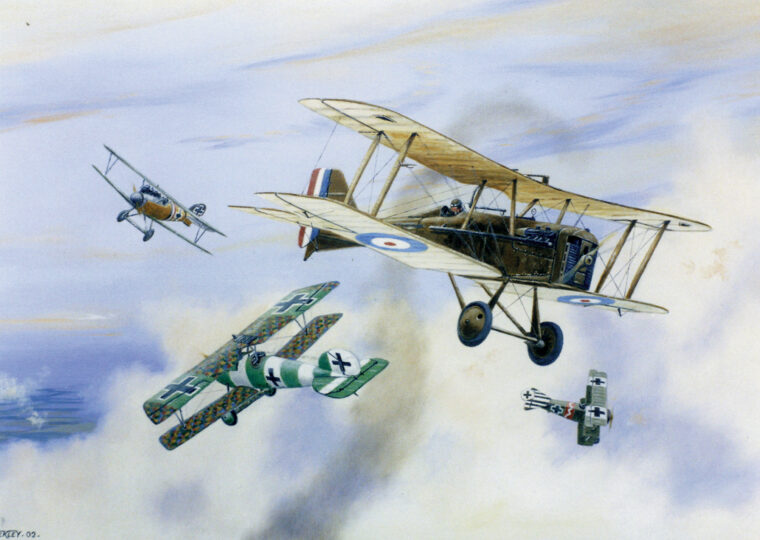
World War I
The agent from the American consul followed a Turkish guard through the prisoner compound. It was early 1915, and he had come on behalf of the Red Cross seeking prisoner exchange for the worst cases in this miserable, disease-ridden place. Read more
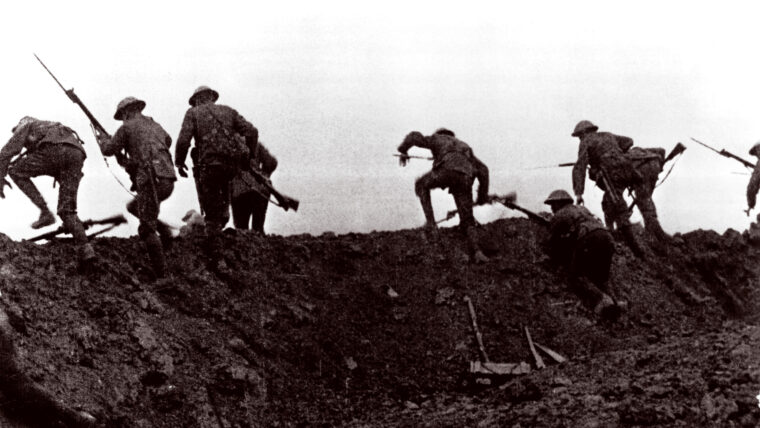
World War I
Early in the morning of July 1, 1916, a mist blanketed the lolling hills of the Somme region of northwestern France. Read more
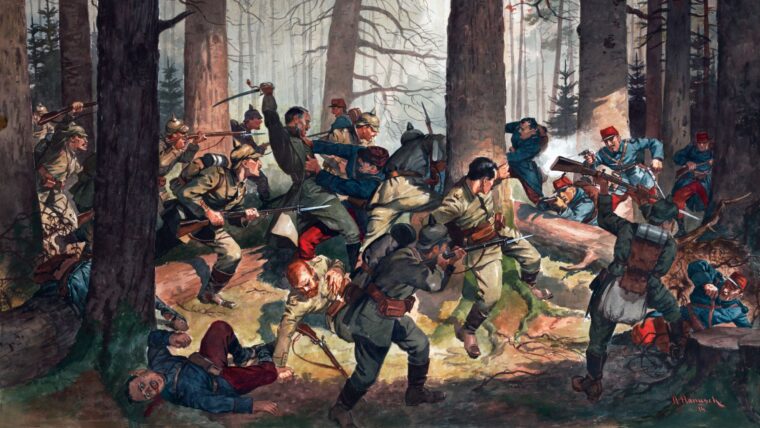
World War I
In the early morning hours of September 10, 1914, long lines of gray-clad German infantry formed up in a steady rain that only seemed to dampen spirits. Read more
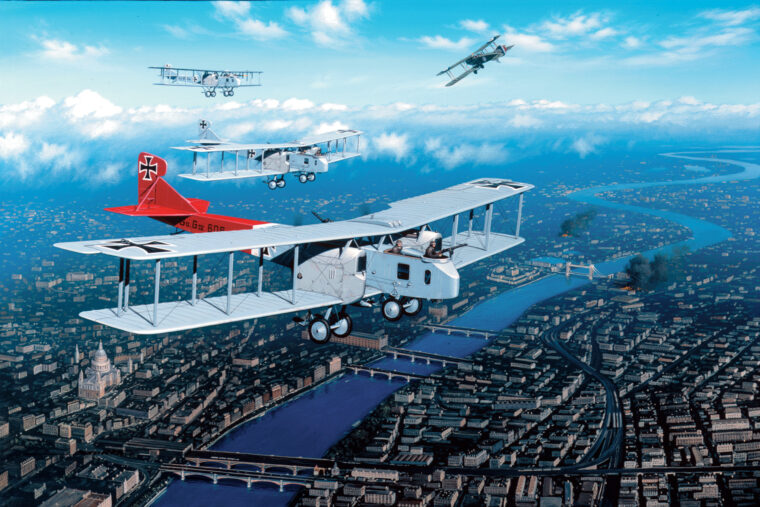
World War I
On May 25, 1917, a fleet of 21 bombers lumbered in a line at 12,000 feet over the English coast. Read more
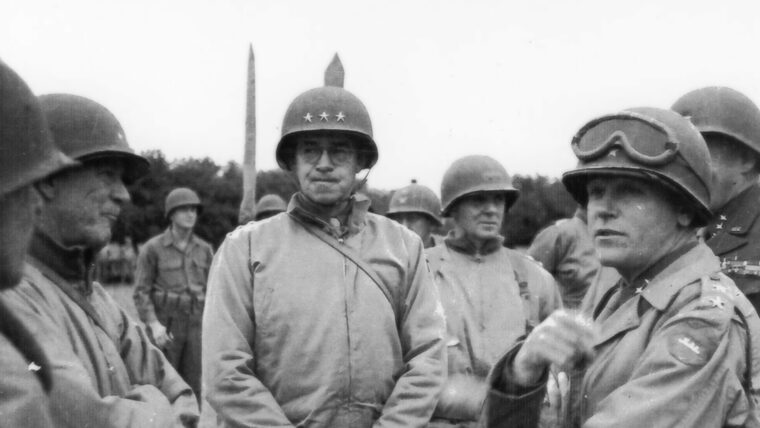
World War I
General George S. Patton, Jr., once said, “An army is like a piece of cooked spaghetti. You can’t push it, you have to pull it after you.” Read more